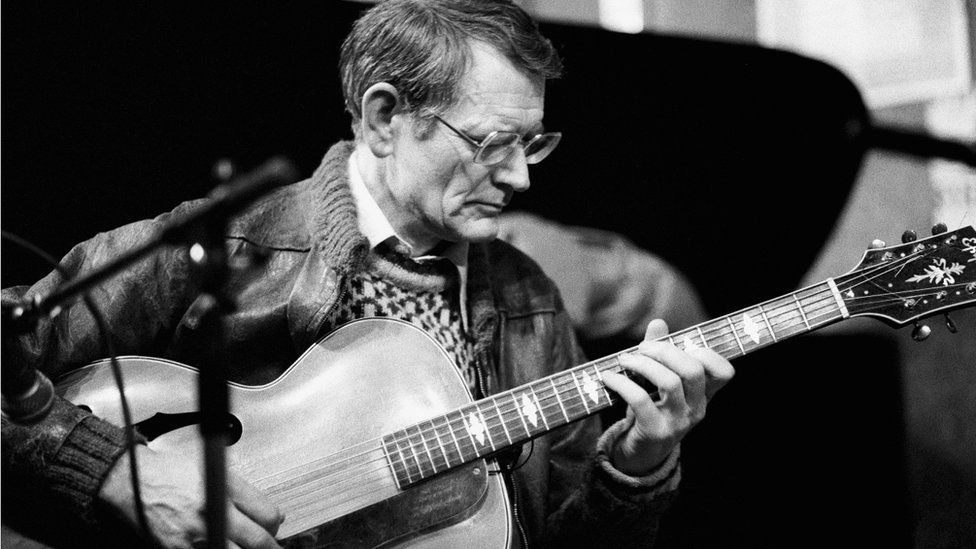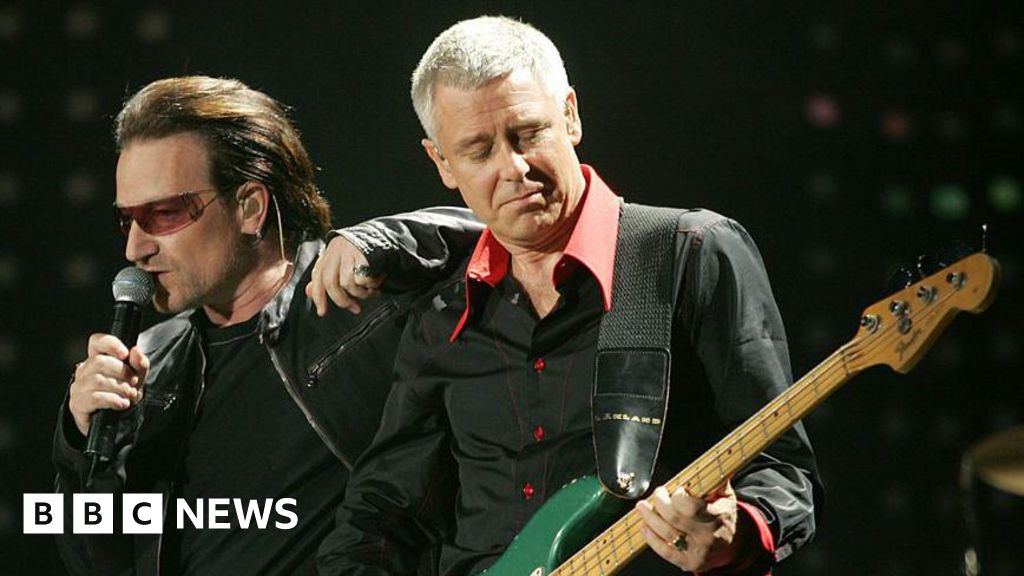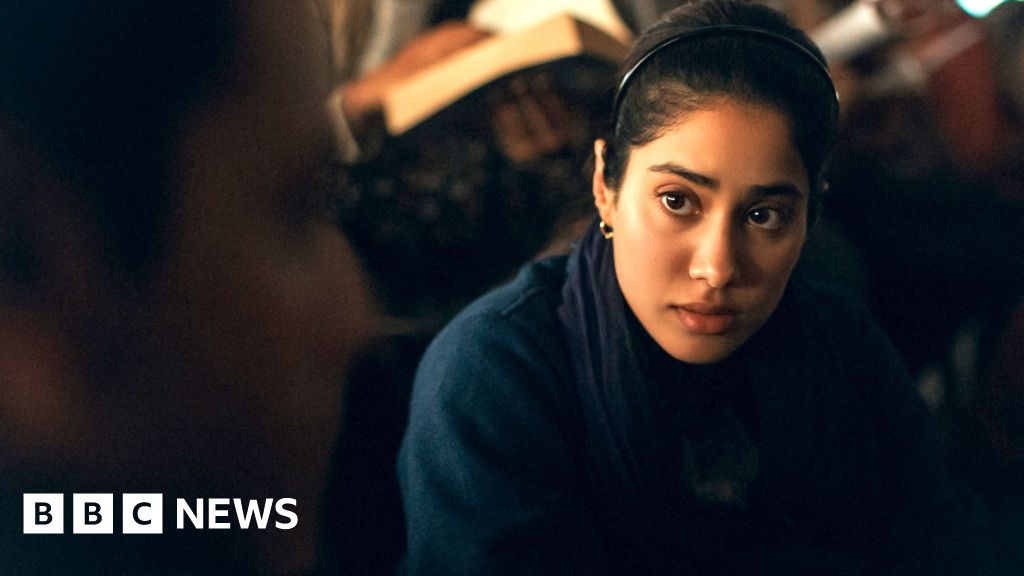ARTICLE AD BOX
 Image source, Getty Images
Image source, Getty Images
Derek Bailey was described as an "implacable enemy of commercialised art"
Guitarist Derek Bailey had forged himself a successful career as a musician, working with the likes of Shirley Bassey and Morecambe and Wise, when he turned his back on mainstream music to become a pioneer in the burgeoning, rule-breaking world of free improvisation.
Now, the life and legacy of the Sheffield-born musician - regarded as one of the foremost figures of the genre - is the subject of a new exhibition at the University of Huddersfield.
Born into a working-class family in the Abbeydale area of Sheffield in 1930, Bailey was given his first guitar by his uncle, who played the instrument professionally.
After leaving school he picked up work as a session musician, playing alongside Shirley Bassey and Gracie Fields, as well as in theatre pit bands for shows such as Morecambe and Wise.
But in the 1960s, he formed a jazz trio with two other Sheffield musicians, drummer Tony Oxley and bassist Gavin Bryars, and began to shift towards what he called the "non-idiomatic" approach of free improvisation.
Image source, University of Huddersfield
Image caption,Derek Bailey made his own plectrums using dentist's acrylic
Megan Barford, curator of the Free to Improvise exhibition, said Bailey's commercial career had been "incredibly successful, if always precarious".
However she said his "thinking about the politics of music-making" made him move away from that world "fairly definitively" at the end the 1960s.
She said Bailey had begun to raise questions about "the relationship between instrumentalists and composers, and also between record companies and instrumentalists".
The guitarist went on to collaborate widely and across genres, and felt bringing together unfamiliar artists, such as Sonic Youth's Thurston Moore or Japanese dancer Min Tanaka, for spontaneous sessions would challenge them and stimulate interesting work.
Image source, University of Huddersfield
Image caption,Derek Bailey grew up in Abbeydale, Sheffield
Ms Barford said Bailey was also "fascinated by" and "deeply knowledgeable about" the sounds his guitar could produce, experimenting with noise, atonality and the set-up of his instrument.
As well as innovative collaborations he also created his own plectrums using dentist's acrylic and sometimes plucking his guitar's strings with objects such as pebbles and shells.
Some of the guitarist's creations form part of the exhibition, along with pedals, posters, programmes and records.
In 1970 he co-founded Incus Records, believed to be the first artist-owned label, in which musicians were involved in every stage of production, right down to their album artwork.
Ms Barford said through his career Bailey was "right at the heart" of the free improvisation movement.
'Rigorous and playful'
In later life, Bailey was forced to experiment further still with his guitar playing, when motor neurone disease left him unable to grip a plectrum. He died, aged 75, of complications from the disease on Christmas Day 2005.
Following his death, critic John Fordham described him as "a guru without self-importance, a teacher without a rulebook, a guitar-hero without hot licks" adding: "With his passing, the world has lost an inimitable musician and an implacable enemy of commercialised art."
Ms Barford said she hoped the exhibition showcased Bailey's "rigorous approach to playing" but also his "playfulness" - with a rubber whale which he hung from his guitar in the 1970s among the items on display.
She added the items, drawn from an archive the university obtained from Bailey's wife Karen Bookman in 2018, also allowed curators to tell a wider story about free music in the second half the 20th Century.
Free to Improvise: The Derek Bailey story is open at the University of Huddersfield's Heritage Quay until 30 September. Entry is free.
Follow BBC Yorkshire on Facebook, Twitter and Instagram. Send your story ideas to yorkslincs.news@bbc.co.uk.
Related Internet Links
The BBC is not responsible for the content of external sites.

 1 year ago
30
1 year ago
30








 English (US) ·
English (US) ·